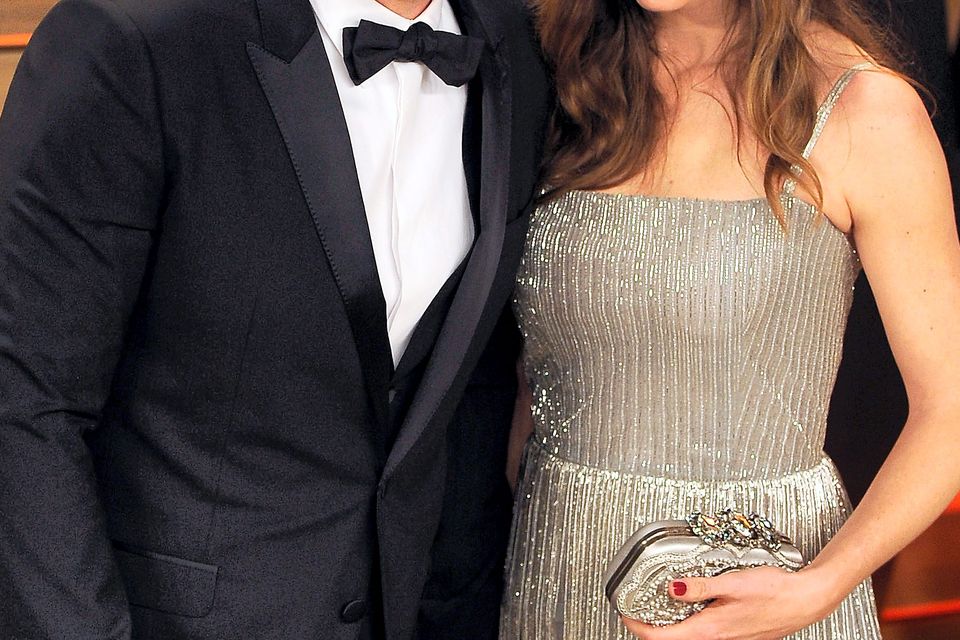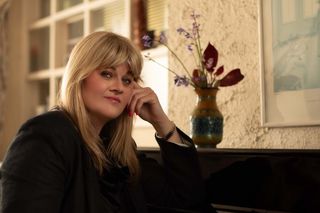Why Ben Affleck owes his success to his wife Jennifer. . .
The actor has reached leading man status again
Power couple: Ben and Jennifer.
We are, it seems, going to have to start calling it the 'Benaissance'. When the greatly anticipated adaptation of Gillian Flynn's Gone Girl opens in cinemas today (see Paul Whitington's review), it will represent a final vindication for its star Ben Affleck. After a decade in the wilderness, the actor is finally back, playing the lead in a high-profile movie.
As an unfaithful husband who may have killed his wife (Rosamund Pike), Affleck, 42, has bagged one of the roles of the year. Flynn's novel is a publishing sensation, and winning the part required Affleck to see off some of the hottest talents in Hollywood.
Indeed, initially the director David Fincher was hesitant about casting him; Affleck had to lobby hard for the job. "Ben went through a period of his life where he was fodder," said Fincher this week. "I guess he still is in a weird way. And you wonder, 'When will they let him off?' But it's really good to have somebody who understands how nutty that is. What it's like to live in a house where you have to draw the drapes, just in case [of photographers]."
Affleck's return to leading man status is, if you step back and survey the larger picture, remarkable. Just a decade ago, the actor was washed-out and washed-up, a goateed punchline with a string of turkeys and a lurid tan. When, in October 2004, GQ magazine published an open letter begging him to turn his career around it felt like a cruel joke: how could anyone in Affleck's position turn anything around.? Truly, he was a lost cause.
So what, exactly, did Affleck do to salvage his place at the Hollywood top table. How, against all reasonable predictions, did the Benaissance come to be ?
In the real world there's no such thing as a single, straightforward answer. Life's too complicated. However, it feels significant that Affleck's renewal coincided with his relationship with, and subsequent to, marriage to Jennifer Garner, with whom he became acquainted on the set of super-hero flop Daredevil.
Affleck was coming out of a relationship with Jennifer Lopez, an assignation that struck many as far-fetched. The arrival onto the gossip pages of 'Bennifer' had coincided with a nose-diving in Affleck's Hollywood prospects. There were many low-points. The horrific romantic comedy Gigli, where he starred opposite Lopez. The even worse Jersey Girl. It is generally agreed, though, that rock bottom was his cameo in the video for J-Lo's 'Jenny from the Block', in which he snaps at her bikini bottom and flaunts his tattoos. In the five seconds he's on screen you can practically hear the 'whoosh' of his career going up in flames.
Then he split from J-Lo, met Garner and everything changed.
For several years, she had the higher profile, receiving good write-ups in movies such as The Kingdom and Juno while he stayed literally out of the picture.
In his few public appearances Affleck was different. To put it crudely, you were no longer overcome by the urge to slap a custard pie in his big self-satisfied face.He didn't appear quite so smug - the reversals of the Gigli era had sapped some of his swagger and he was better for it. Affleck had received a crash-course in humility.
There were also children - he and Garner have two daughters, aged eight and five, and a two year-old son. Obviously, parenting is very different for a Hollywood A-lister than for the rest of us: with nannies and personal assistants available around the clock, it's not as if they have to sacrifice beauty sleep or worry about juggling work and family commitments.
That said, perhaps parenthood let Affleck in on the secret that there were things in this world of greater consequence than his professional status.
His solution was to stay hidden in plain sight. His 2007 'comeback' was a movie in which he did not appear. Instead, he directed Gone Baby Gone and cast his kid brother, Casey, in the lead. He tentatively stepped in front of the camera in Boston-set caper The Town, though, because he directed, the focus again was on his chops as film-maker rather than as leading man.
Something was happening. We were learning to look at Affleck in a new light - to see him as an interesting movie-maker who occasionally put himself in his films, rather than a brash young man with the world at his feet and rather too pleased about it. The comeback was sealed with 2012's Iran hostage crisis drama Argo, for which he won an Oscar for best picture (again he directed and starred).
"This is a second act for me," he said, receiving a 'best director' gong at the Baftas in London for Argo. "And you're giving me that and this industry has given me that. I want to dedicate this to anyone else trying to get their second act - you can do it."
As she applauded from the back of the hall Garner - while in no way a wallflower living vicariously through her husband - could be forgiven a moment of celebration. For it was surely her triumph as much as his.
Join the Irish Independent WhatsApp channel
Stay up to date with all the latest news















